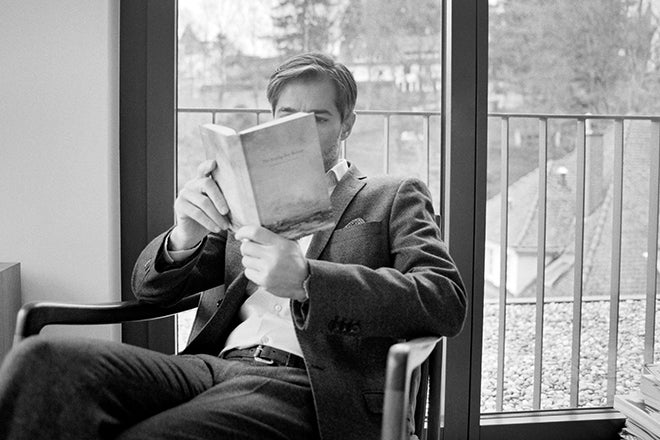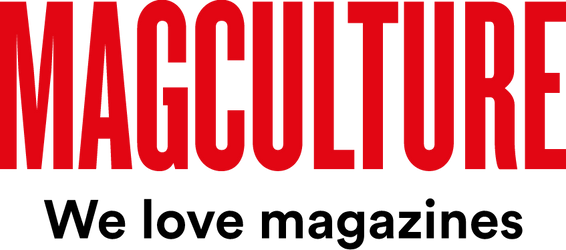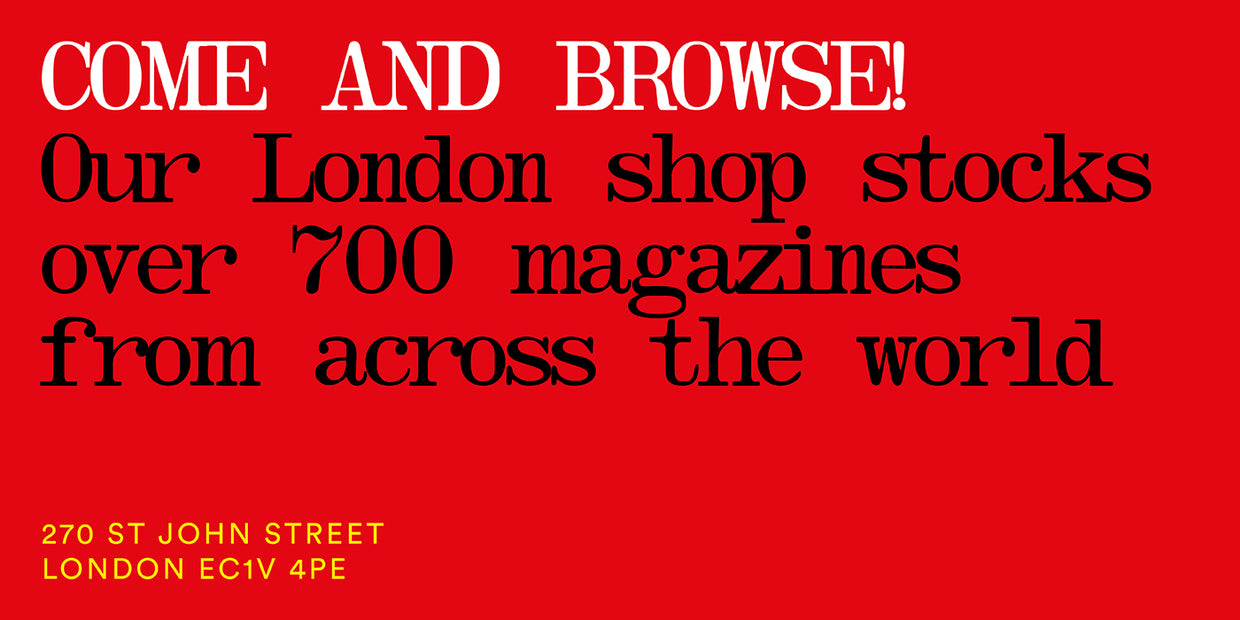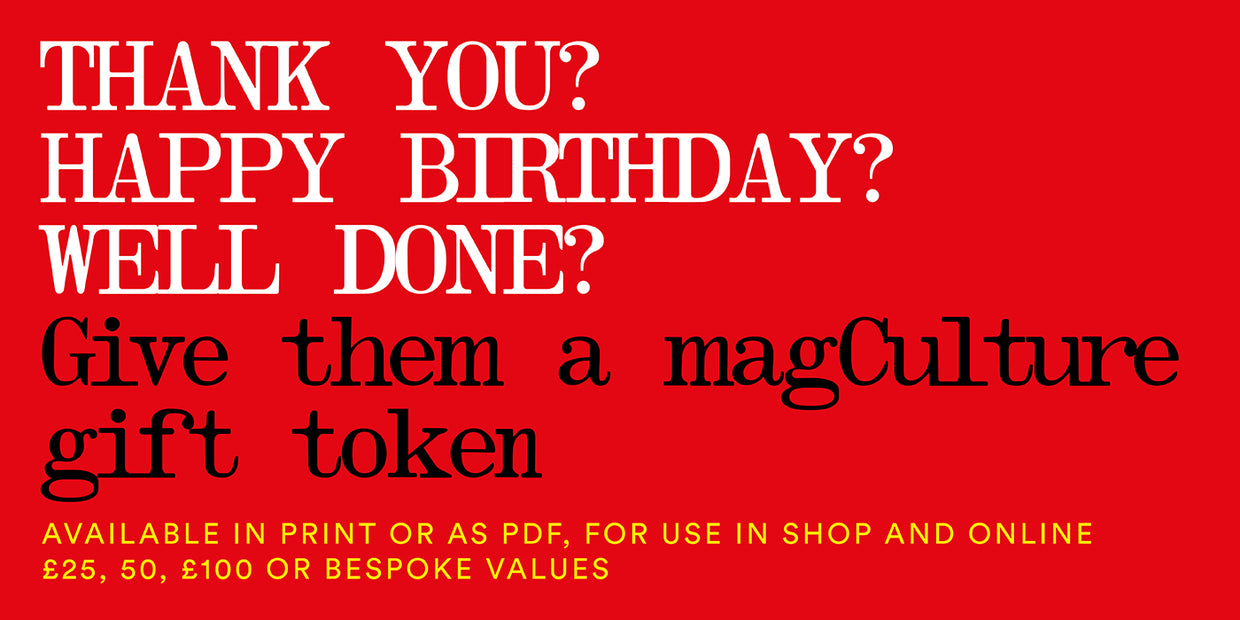

Jonathan Simons, Analog Sea Review
We often talk here at magCulture about the necessity of a digital presence to succeed in print. Today we meet a publisher who, at the very least, is the exception that proves that rule; or perhaps he’s pointing the way forward?
Jonathan Simons is the founding editor of Analog Sea, the publishing house behind a series of beautifully composed, small format, hardback books. Alongside these, they also publish Analog Sea Review, a journal of long form writing that follows the same design and format. With editorial offices in Austin, Texas and Freiburg, Germany, Jonathan and coeditors Janos Tedeschi and Elena Fritz spend their days crafting their publications and answering letters from a growing community of devoted readers.
We meet Jonathan as issue three of Analog Sea Review arrives in shops.
Tell us about your typical Monday journey to work.
I spend much of my time working out of our small office here in Freiburg, in the southwest corner of Germany. The central neighborhoods of this small university town date back to the High Middle Ages and are adorned with massive trees and Art Nouveau houses. After forty years living mostly in imposing metropolises, my daily commute to work now feels like a glorious escape.

Describe the state of your desk and what you can see in your office.
If it was summer, and if a pandemic hadn’t closed the neighborhood pool situated behind our rear wall, the small window next to my desk would illuminate my workday with an endless parade of nearly naked swimmers frolicking in the sun while I drown in texts and abysmal spreadsheets. But it’s cold and dark now in Germany, so instead I dream of Greece and swimming in the Aegean Sea off the island of Hydra.
Apparently there exist in the world artists and writers for whom chaos is a boon. I am certainly of the opposite camp, unable to even begin to think or feel very deeply until every last bit of clutter has been shredded, filed, deleted, delegated, or at least hidden away somewhere in a crate. So Monday mornings begin with the ritual clearing from my desk of the previous week’s accumulation of texts, books, letters, magazines, newspapers, jotted notes, crumpled manifestos, and the boundless bureaucratic minutiae reminding me that my art has become a business after all.
Once all the bric-a-brac has been swiftly whisked into any available storage bin, my spartan desk looks up at me like a magic trick, and I take this illusory sense of progress smugly to the kitchenette, where I make Elena and myself our first triumphant cups of coffee.

I begin the week with the bright intention not to be devoured by the administrative deluge which defines business in the modern age. I sip my coffee and pretend that I am waiting for Sartre or Camus to join me at the Café de Flor. I resist the temptation to turn on my computer so I can keep the grim spectacle at bay for at least another twenty minutes. I check the window for swimmers, just in case. And then I summon my faculties of attention, perhaps with a pot of second flush Assam tea.
When not knee-deep in one of our editorial seasons, I focus a few hours each day on correspondence. Letter-writing is usually time very well spent and often a hairline away from one’s best writing.
I sip my tea and wonder whether my offline morning might stretch out for another hour. Soon enough, though, the phone will ring and the day’s first annoyance will present itself, or I will give in and enter that interminable realm of tedium we call e-mail. By midday, when the bureaucratic monsters have me firmly in their grip, I remind myself that if I can remain even marginally inspired within this relentless world of business then I can probably do so in just about any situation.

Are you feeling optimistic about 2021?
I am feeling optimistic, not because I maintain much hope in our collective ability to solve our complex global problems, but because the most basic conditions one needs for thinking, dreaming, and making objects of beauty persevere despite it all. I believe each of us has a basic human right to disconnect, to retreat, to abandon the marketplace entirely from time to time and while away the afternoon reading a book or making things with our hands.
Of course, we also need to find ways, whether small or ambitious, to serve our communities and to put a few bricks back into that fragile palace we call civil society. But no matter how alarming or captivating today’s news and social-media feeds may feel to us, it’s of vital importance that we periodically step out of the raging spectacle that is the Internet so as to maintain some degree of self-reliance and interiority.

Which magazine do you first remember?
It’s hard to say whether my young mind was first grooved by Boy’s Life, the Boy Scouts’ periodical, or Mad Magazine. I do remember building a simple robot from disparate Radio Shack parts using instructions I found in a magazine, so it was probably the former. Boy’s Life was all about building little robots. I regret not to have been raised in a household full of more interesting books and periodicals.
But in my case, I believe it was my incessant tree allergies which prevented Boy’s Life (now Scout’s Life) from turning me into a Republican sportsman. And the early exposure to social criticism I found within those cartoonish pages of Mad may have seeded in me my deep cynicism for the American dream and just about any form of massified groupthink.
As a late adolescent, I was an avid skateboarder, at which point Thrasher became a bible of sorts. It was only once I escaped Texas for boarding school in New England that I finally discovered the power of literature. My tie-dyed English teacher, a poet, introduced me to the likes of Robert Bly, Whitman, Thoreau, Poe, Rilke, Somerset Maugham, and D.H. Lawrence, not to mention my own emergent peep of a voice.
At this point, once my curiosity for the arts and letters was set in motion, magazines and journals became regular treasure maps from which I discovered not only people, stories, and ideas but also an initial feeling of what it might be like to be part of an intellectual or creative community. Hiding out in far corners of the school library, skipping classes whenever possible, I was perfectly happy letting my education go rogue as I savored each new issue of National Geographic, Rolling Stone, The Sun, Parabola, and The New Yorker.

Which magazine matters to you the most right now?
Perhaps Harper’s, because it seems to me to remain independent, not just from undue influences of global capital but from popular culture at large. I’m also quite smitten with Cabinet, Elementum, and the German magazine Lettre International.
I firmly believe that a periodical should not aim to cater to everyone. Doing so may be essential for good governance but I believe that the likes of magazine editors and museum curators deserve as much creative license as sculptors, dancers, and poets. It’s precisely this freedom which enables some magazines to shine. They are not led by technocrats or marketing executives but rather by visionary artists in their own right.
What binds together an enthralling anthology is the editorial vision behind it. And, like good wine or tea, it’s not always readily apparent from reading one piece or even one issue. Discovering the subtleties of what moves an editor of a good magazine takes time. This is what I see as craft, and I value the care and attention of an editor’s silent work that invites readers to investigate how the threads of a volume weave together. It’s certainly possible to suss out such subtleties from online media, but digital culture peddles so much fragmentation that it’s more difficult to experience an online publication as one coherent constellation.

Describe your magazine in three words.
Life beyond machines.
Explain the Analog Sea vision of disconnection.
People think we at Analog Sea despise the Internet or that we’re Luddites. We don’t, and we’re not. Yet it’s become difficult to ignore the ways in which global digital platforms are disrupting democratic norms and civil society.
For me personally, as a writer and editor, I am most concerned with how the digital revolution is shaping the arts and letters. We speak of ‘digital literacy’ as if an assemblage of fragmented tweets, posts, and headlines, and the learned dexterity of juggling it all together, represents cultural evolution. As I argue in my ‘Offline Manifesto,’ which introduces the new issue three of Analog Sea Review, good art rests upon the artist’s ability to think and feel separately from the crowd, to be alone, to maintain some semblance of interiority.
So it’s not a question of whether or not the Internet and our gadgets are marvelous tools but whether or not we end up enslaved by them. As more of life and culture is swept up and mediated by screens, there are countless reasons why each one of us should remain vigilant that we ourselves don’t get swept up too. Where is the center of your universe? If it’s somewhere physical and directly linked to your senses—your favorite chair, your living room, your easel, your neighborhood—then you yourself have not been digitized. But if your world is one of screens and apps and tweets and posts, and your sense of place feels ephemeral and groundless, it’s really time to shut off the glut and crawl your way back onto reality’s mainland.
More than a mere critique of digital culture, The Analog Sea Review, our literary journal, aims to celebrate the multisensual, physical reality we call offline culture. Ultimately, offline culture is any experience one has away from screens and the Internet. To those of us not addicted to this new virtual world—though I argue that we are all addicted, at least somewhat—this may sound rather obvious and banal.
But it’s also a question of what we want to preserve within our lives and communities when it comes to places and activities not mediated by the digital marketplace. Digital literacy is all well and good, but let’s hope that future generations also understand that literature is a deep well, that food comes from plants and animals, that photographs cannot be eaten, that one’s attention span defines quality of life, and that wishing to be alone is not itself an illness.

You run an impressive communications programme in print, and encourage readers to reply by written letter. Do they write to you?
Our weeks usually end as we settle into our Friday afternoon ritual which we have come to call ‘the sugar high.’ This is when we open the stacks of mail we’ve received throughout the week. I’d say this is the second most invigorating experience we have at Analog Sea, inferior only to when we receive the first copies of a new edition from the bindery. In an age of communication homogeneity—the engulfing monsoon of Helvetica and emojis—we draw immense pleasure from receiving thousands of letters from readers and writers, each one as unique as the next.
Handwritten letters, although occasionally illegible, suggest age, mood, degrees of elegance and care. And the envelopes themselves convey fragrance, for better or worse, bringing us, olfactorily, into the rooms where the letters are written. The paper crafts, photos, dried flowers, and other enclosures would otherwise come to us as mere one-dimensional surrogates relegated to a PDF non-space.
As for the presence of digital tools in our lives and work, of course we benefit from computers and the Internet, but we aim to keep our publishing efforts in the physical realm as much as possible. We’re enamored with paper and ink and feel strongly that physical books should continue to exist, so we keep our sights focused on print and don’t bother with any forms of social media.
Aside from word-of-mouth, most readers discover us by stumbling upon a copy of our free publication, The Analog Sea Bulletin, which we distribute widely through our stockists, writing centers, universities, and elsewhere. Within all of our printed outreach we encourage new readers to contact us via letter or postcard to request a free copy of our bulletin.
When people ask me why we ‘make it so difficult’ for people to discover Analog Sea and procure our editions, my response is that it’s intentional. Arguably, art dies in a purely consumeristic environment based on instant gratification, economic maximization, rushed market availability, and efficiency. How can poetry thrive in such environments?
In the age of behemoth online retailers, the commodification of books has gone too far. This is why we try to keep the trade of our books within local shops and human hands rather than algorithms. The arts and letters don’t need to be ‘disrupted,’ as the new parlance of neoliberal greed suggests. Let’s preserve all the ‘friction’ and discomfort one finds reading long or complex works of literature and not entrust their distribution to robots which disenfranchise local creative communities.
I believe that the health of a community, in part, can be judged by how many people it has, per capita, whose profession it is to guide people’s curiosity. Librarians, booksellers, and gallery curators are all great examples of this. It’s in our best interest to keep objects of culture within the hands of local institutions and the humans who work there.
At the heart of the Review is the writing, which is always notably strong and impressively varied. How do you pull together all the excerpts, interviews, and original writing?
We organize The Analog Sea Review around unannounced subthemes, each beginning with a piece of visual art. The themes, which readers have to figure out for themselves, often come to us initially from a text we find and love, or from one of our interviews with people who interest us. From there, our priority is to embellish the theme wherever it takes us, regardless of the age, genre, notoriety, source language, or publication status of a text. My hope is that readers of our editions end up experiencing the same joy we editors have chasing after our curiosity like elated schoolchildren.
What are you excited about for this coming week?
As always, I am excited for our sugar-high on Friday, opening letters from fellow readers and writers. I am excited for another week working alongside the talented Elena Fritz. And, of course, I am excited about the reopening of cafes, galleries, and museums, and about our next book tour, but sadly all that will have to wait until the world is once again our oyster.
Ultimately, I am most looking forward to another week of offline evenings devoted to reading, writing, sipping tea, and playing my piano. In the words of the beautifully loquacious New York City tour guide and philosopher Timothy ‘Speed’ Levitch, ‘I would say that life understood is life lived. But the paradoxes bug me, and I can learn to love and make love to the paradoxes that bug me. And on really romantic evenings of self, I go salsa dancing with my confusion.’
To receive a free copy of The Analog Sea Bulletin printed newsletter, which includes a complete list of Analog Sea stockists, send a letter or postcard to Analog Sea at either Basler Strasse 115, 79115 Freiburg, Germany or PO Box 11670, Austin, TX 78711, United States.
Buy your copy from the magCulture Shop



